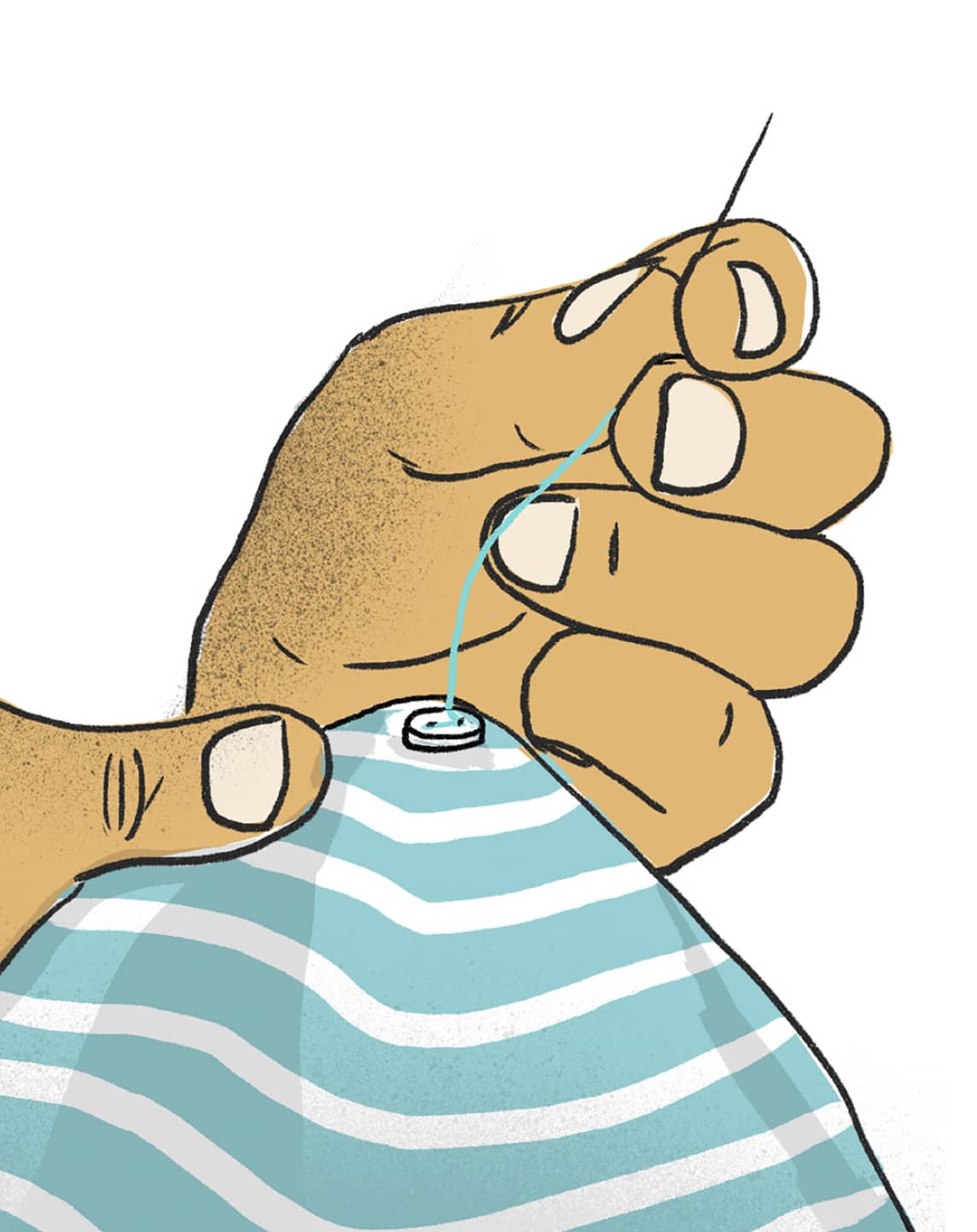Restore, Repair & Fix
Gone are the days when we would typically fix something rather than throwing it out; we have become a throwaway society. It can be easy to call a professional when something breaks or buy a replacement, but often you could mend it yourself and save the money. If we don’t try, then we will never learn new skills such as repairing holes in the walls or fixing the kitchen cabinet, or feel the satisfaction gained when we take control of our own surroundings.

MAKE DO AND MEND
The idea of learning a new skill to repair a leaky tap or a broken chair leg increases your self-reliance, making you less likely to panic when things go wrong. It’s a great feeling to look around your home and feel that you’ve maintained it yourself. And whether it’s fixing a radio or painting a piece of furniture, the process of repair can be turned into a mindful exercise. The process allows us to concentrate calmly on an absorbing challenge, and when it’s completed successfully, it boosts our self-esteem and gives us the satisfaction of looking at the fruits of our labour. (Or, if the repair really doesn’t work, it at least gives us the chance to learn new skills and practice mindfully dealing with frustration.) By repairing our home and possessions, we are also maintaining ourselves.
Our grandparents would probably have had the skills to mend most household items, and things were commonly passed down through families and repaired on the way. Modern goods are mass-produced, and we can replace them cheaply, rather than bothering to fix them. We are piling up landfills with things that could be reused, whereas buying new means more transportation, storage costs and packaging, using natural resources and increasing global emissions.
Social events are taking place where the public can bring along broken electrical items and attempt to repair them with some support. The aim is simply to extend the lifetime of electrical equipment and reduce the amount that becomes waste.
One word of caution before we go on. Many repairs at home can be done with little experience – but do ensure you research anything that you don’t understand, particularly if you are dealing with electricity. Likewise, an important part of mindfulness is to be aware of our own faults, and often this can be taking on too much ourselves. Calling in help from friends or professionals can be a good thing; we need to step back and think about when this should take place in all aspects of our lives, not only when the boiler needs fixing. There are situations when it might be advisable to hire an expert or replace the item; don’t be so committed to repair that you risk your own safety and wellbeing.
THE BENEFITS OF FINDING OUR OWN SOLUTIONS
Think of a car junkyard. These are places where we can find a part in perfect working condition for a very low price compared to buying new from a manufacturer. Yes, it takes time and effort to find a decent repair shop, to source a spare part or to sew up the hole in your old pair of socks when we could just buy a fresh pair, but there is much we can learn from taking time to mend our belongings. Fixing things and sourcing new parts can help us to gain a sense of accomplishment and contentment, allowing us to love and appreciate the items that we already possess. It’s not difficult to sew on a missing button or repair a ripped seam, and if sewing isn’t your thing, then friends and family may be able to help you. You could barter your time, for example cleaning their car, gardening or fixing their bike in exchange for some help with mending.
We learn more about how things work, and in the process can spend time bonding with children or family members, trying to find a solution together. While we labour, we could think about how our predecessors may have carried out similar tasks in the past, and how we can pass the skills on to others. Children today are often focused on screens and have little practical experience. Gardening and DIY are two activities that encourage children to connect with their surroundings and the world around them – and if you want to build a bridge between the virtual realm and the real one, ask them to find you online tutorials for repairing things. There’s a world of information out there, and it’s an excellent way of using the Internet to redirect them back into the practical world.
A switch in mindset about fixing things rather than throwing them away means that we can preserve heirloom items, maintaining them to be kept through the generations.